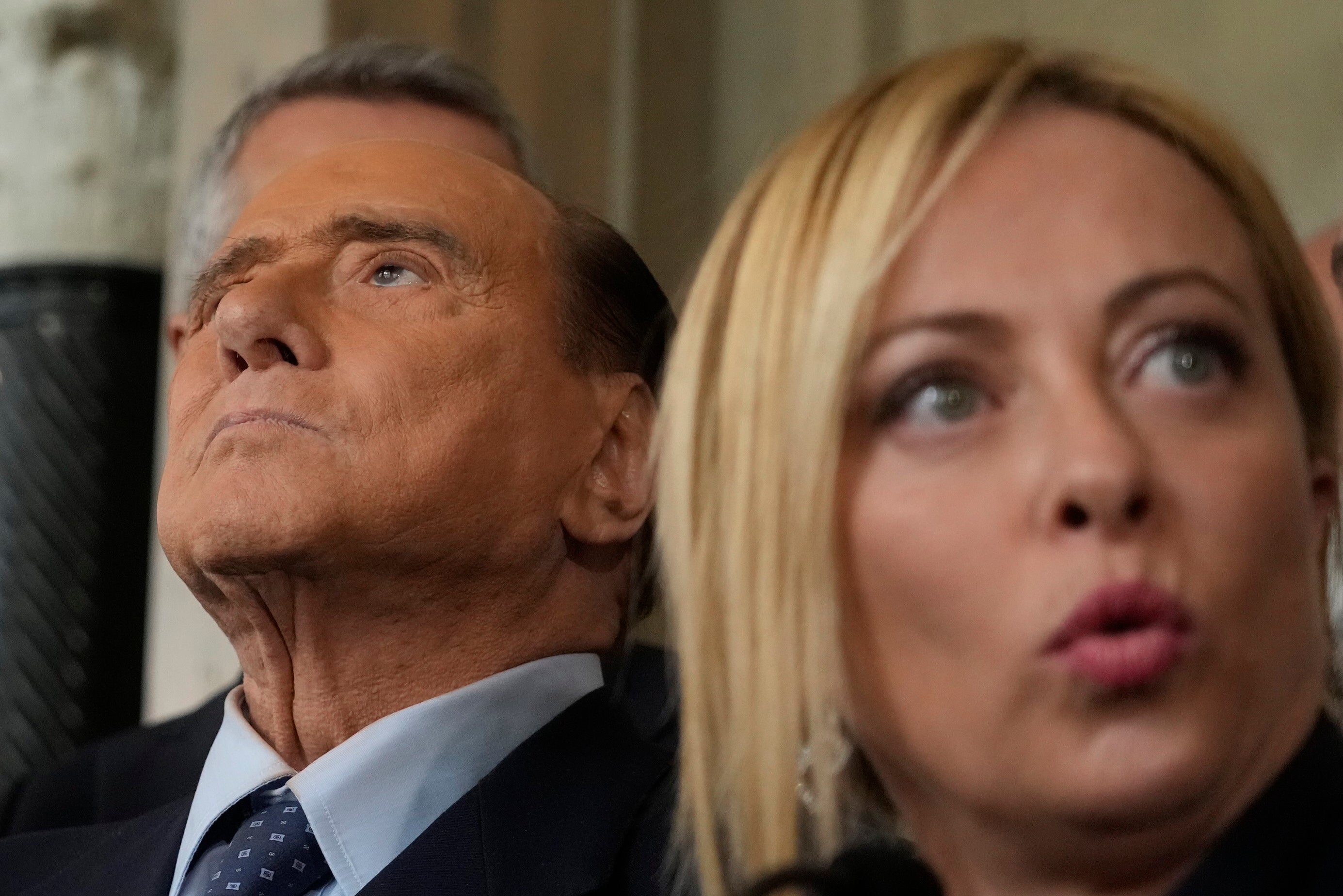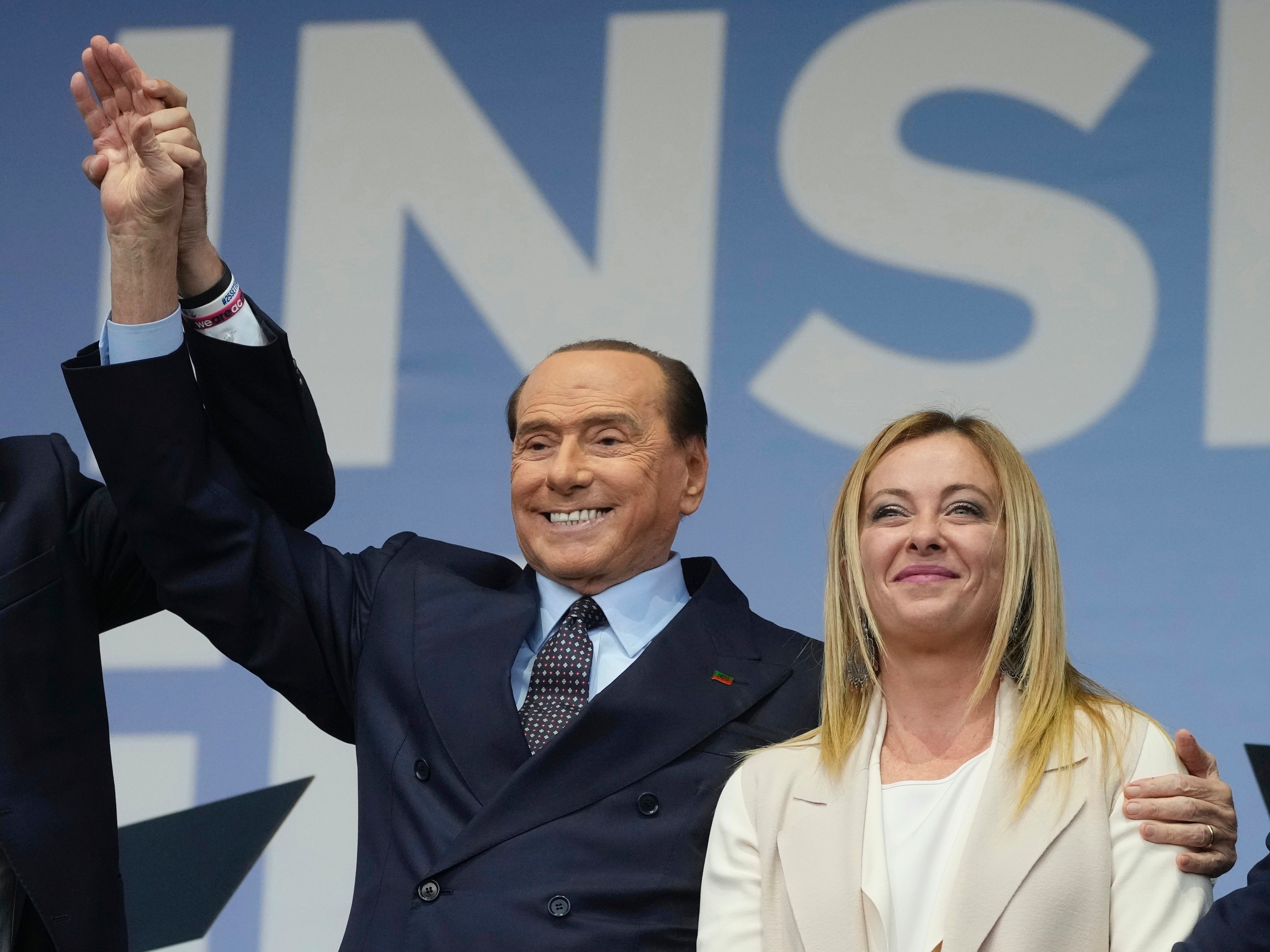How Putin-loving Berlusconi’s final stance drove Italy towards Ukraine
Giorgia Meloni’s condemnation of her predecessor has brought Italy closer into the European fold, says World Affairs Editor Kim Sengupta


Silvio Berlusconi used to declare that he had established Italy’s position on the world stage by protecting national interests while solidifying support from Western allies.
Such was his expertise on international relations – or so he believed – that he made himself foreign minister as well as prime minister, and sought to build personal relations with foreign leaders.
However, Berlusconi’s last major attempt to shape his country’s foreign policy – supporting Vladimir Putin and blaming Volodymyr Zelensky in the war in Ukraine – would have left Italy isolated in Nato and the European Union.
As it is, his stance led the European People’s Party, which has a membership of 82 right-wing parties from 43 countries, including his own Forza Italia, to cancel a meeting in Italy. Group president Manfred Weber, of Germany’s Christian Social Union, remarked: “Support for Ukraine is not optional.”
Berlusconi long boasted of his closeness to Putin, saying he was “one of the five true friends of the Russian president”. Last October, eight months after the Russian invasion of Ukraine, he spoke of a new warmth between the pair. “I have reconnected with President Putin quite a lot,” he said. “He sent me 20 bottles of vodka and a very sweet letter on my birthday. I sent him back Italian wines and a letter just as sweet.”
Forza Italia was then about to join Italy’s right-wing coalition government under the Brothers of Italy leader Giorgia Meloni. After Berlusconi’s revelation of the gift exchange, she hurriedly issued a statement saying Italy would never be “the weak link of the West” under her government. In response, Berlusconi called her “patronising” and “bossy”.
Disproving initial trepidation among Western allies, which was due to the presence of Forza Italia in the coalition, Meloni has taken a firm stand against Russia during the conflict. Italy has sent arms to Kyiv, and Meloni has urged the swift admission of Ukraine to the EU.

Her support for Ukraine, and her condemnation of Berlusconi’s support for the Kremlin, has helped her to establish credibility among Western leaders. She recently had an unusually long three-hour meeting with Rishi Sunak in London.
As well as reiterating its Nato commitment, Italy has modified its position on the EU.
There was celebration among some Brexiteers when the right-wing coalition won last autumn’s election, with predictions that the result would widen fractures in the EU. Nigel Farage spoke of confrontations between Rome and Brussels. The Daily Telegraph declared that the result was “confirming a popular rejection of the technocratic style of government beloved by Brussels elites.”

But Meloni declared quickly that her government would comply with all EU rules and regulations. In her maiden speech to parliament, she pledged that her government would remain within European institutions “because that is the place Italy will make its voice heard loudly”. She added that there would be no attempt to “slow down European integration but to steer it to be more efficient in its response to crises”.
Senior Italian government officials say the economic and social turbulence witnessed in the UK has been salutary. Demands from parties within the coalition for a referendum on EU membership have been dropped.
Italy is moving away from Russia, but the Kremlin still has allies in the EU and Nato. One of them, Hungary’s Viktor Orban, said Berlusconi “leaves a huge void because he was a great man; I loved him very much. Farewell Silvio.”






Join our commenting forum
Join thought-provoking conversations, follow other Independent readers and see their replies
0Comments